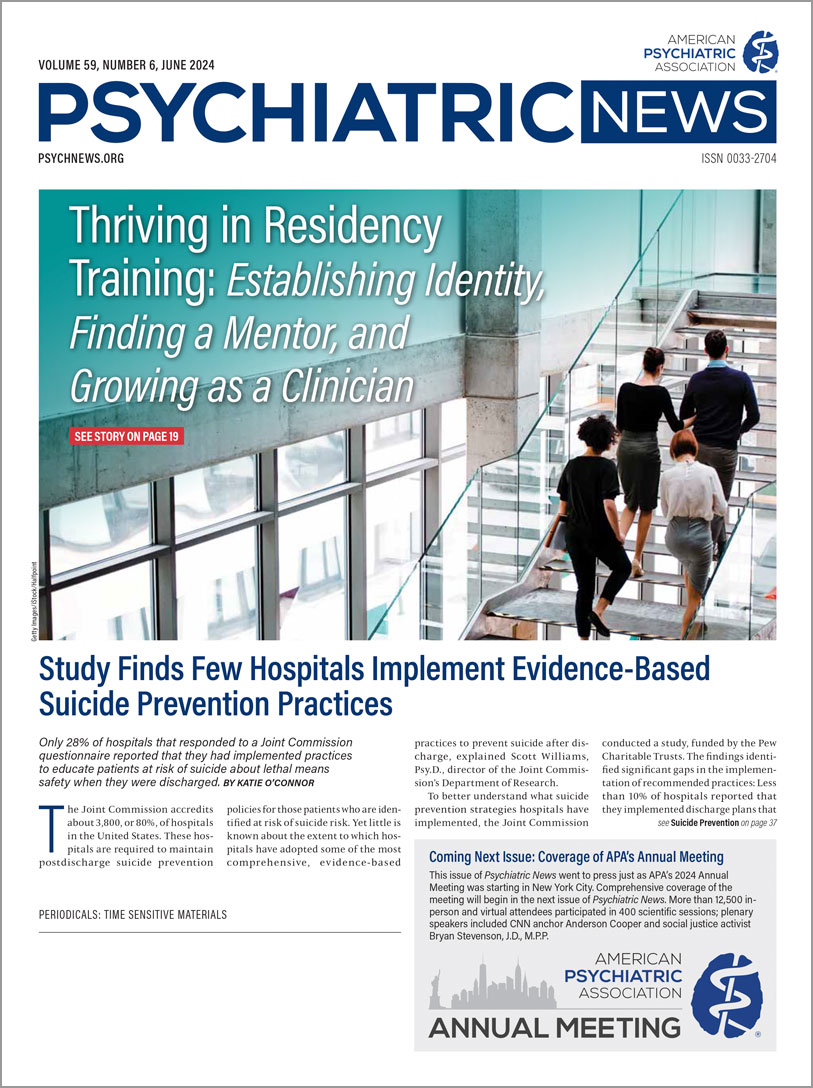APA Urges HHS, FCC To Require Georouting For 988 Calls
The 988 Suicide and Crisis Lifeline became available nationwide in 2022, and since then millions of people in crisis have been connected with help and support. However, advocates have pointed to a limitation in the 988 system: Calls to 988 are routed to a crisis call center based on the caller’s area code, rather than physical location. That means, for example, that a caller with a Virginia area code who experiences a crisis while traveling to Chicago would be connected with a Virginia call center when reaching out to 988.
Because of this, 988 is “limited in its ability to reach its full potential,” wrote APA and numerous other organizations in a March letter to Department of Health and Human Services (HHS) Secretary Xavier Becerra and Federal Communications Commission (FCC) Chairwoman Jessica Rosenworcel.
In the letter, the organizations called on the FCC and HHS to take immediate action to improve the routing of 988 calls. The agencies have previously encouraged wireless carriers to identify and develop a 988 georouting solution, but such encouragement, the organizations argued in their letter, “is simply not enough—especially when we know there are existing solutions at the ready today.”
While legislative proposals in Congress would require georouting for 988 calls, APA and the other organizations urged the FCC and HHS to take immediate, decisive action. “Tragically, time is not on the side of people seeking help during a time of crisis,” the letter stated. “In 2022, nearly 50,000 Americans died by suicide, and nearly a quarter of high school age children reported having thoughts of suicide. We must do better—now.”
In late April, the FCC issued a
Notice of Proposed Rulemaking, which proposes adopting a rule to require georouting for all wireless calls made to 988, while balancing callers’ privacy needs by not transmitting their precise location.
APA Meets With Federal Agencies to Support Proposed Parity Regulations
APA strongly encouraged the federal government to release the final rules and shared feedback from APA members related to the administrative burden they experience and issues regarding reimbursement rates due to lack of parity enforcement.
Stay on Top of APA’s Advocacy Work in New Webinar Series
Staff from APA’s Division of Advocacy, Policy, and Practice Advancement were joined in late March by then APA President Petros Levounis, M.D., M.A., to launch the new “Quarterly Advocacy Update” webinar series.
In the interactive series, APA members can learn about the Association’s advocacy work with Congress, federal agencies, and the White House and the critical role that members play in these advocacy efforts.
The next webinar will be held on July 30.
APA District Branches Voice Public Health Concerns Over State Psychedelic Proposals
APA has coordinated with several district branches to voice public health concerns regarding psilocybin and psychedelic legislative proposals in the states. This year, more than 20 states are considering varying proposals, ranging from establishing pilot programs, research studies, or task forces to allowing for supervised use and decriminalization. Proposals in California, Illinois, and Massachusetts are the most comprehensive so far, with a ballot initiative expected in Massachusetts this fall. District branches in these states have voiced their opposition.
Such bills have become increasingly common since Oregon became the first state to decriminalize the manufacture and administration of psilocybin at licensed facilities in 2020. To date, six states have enacted varying laws.
APA believes the use of psychedelic and empathogenic agents for psychiatric and other medical indications is investigational. The safety and efficacy of these agents have not yet been fully reviewed by the Food and Drug Administration nor have these agents been approved for any clinical indication.
